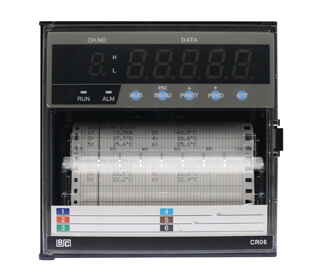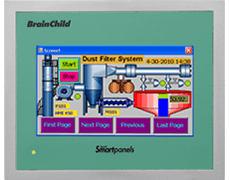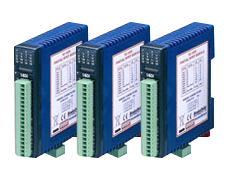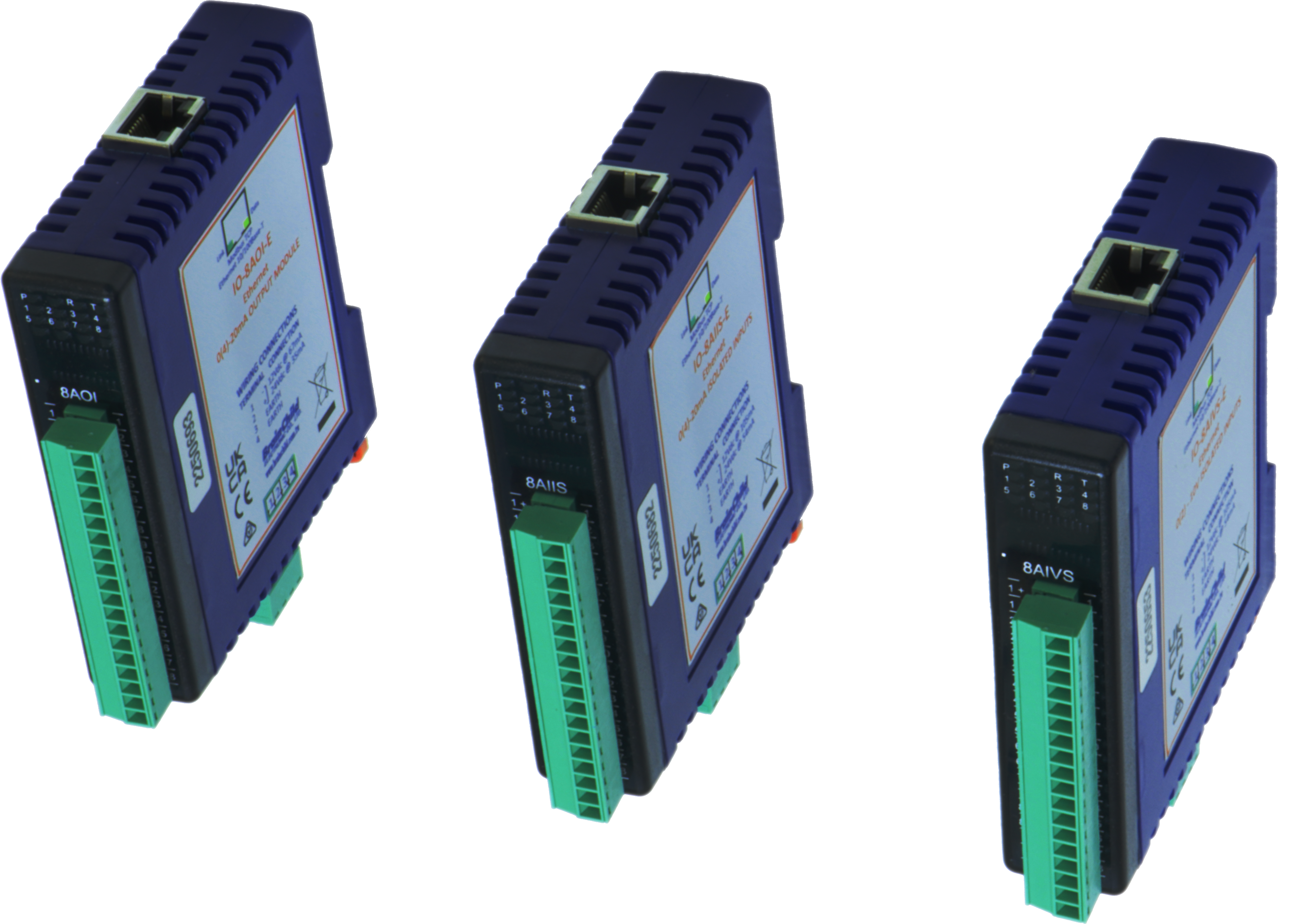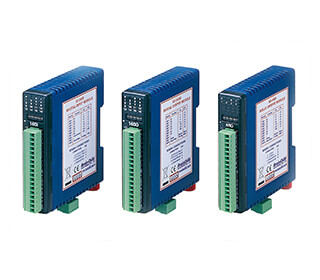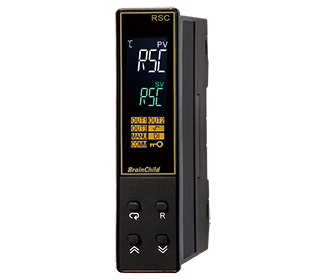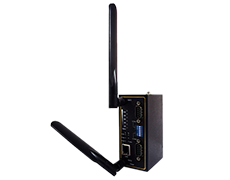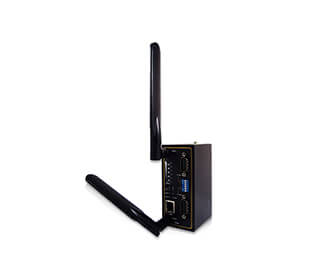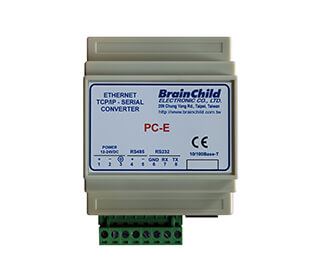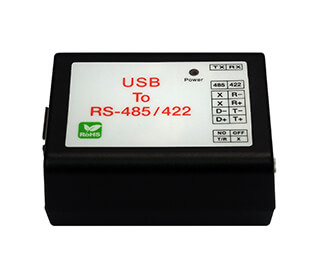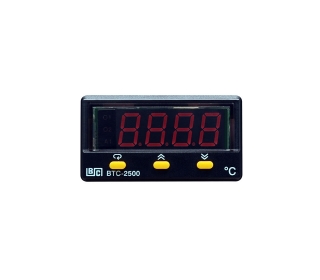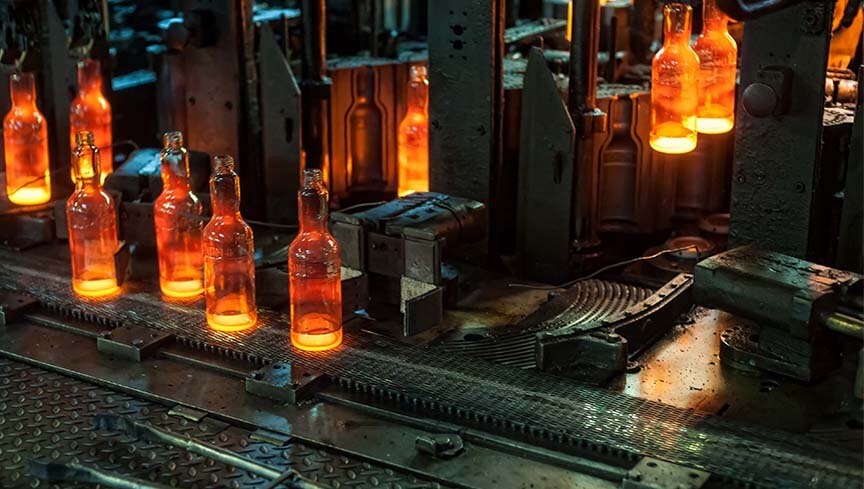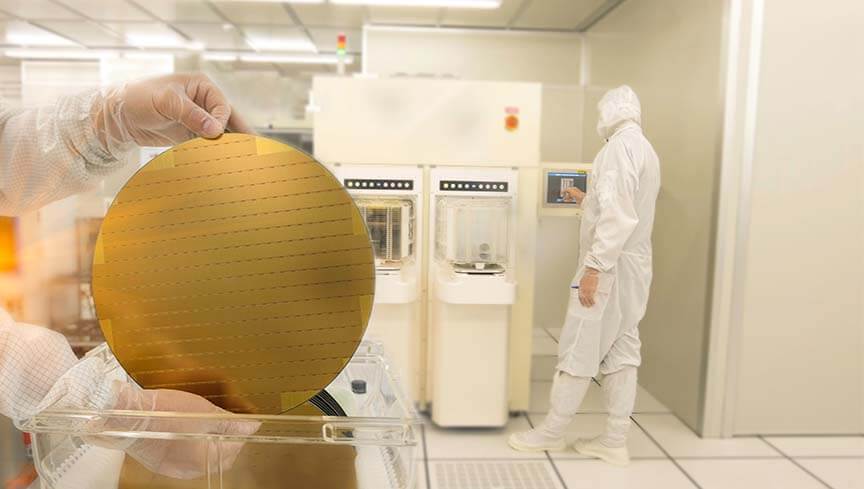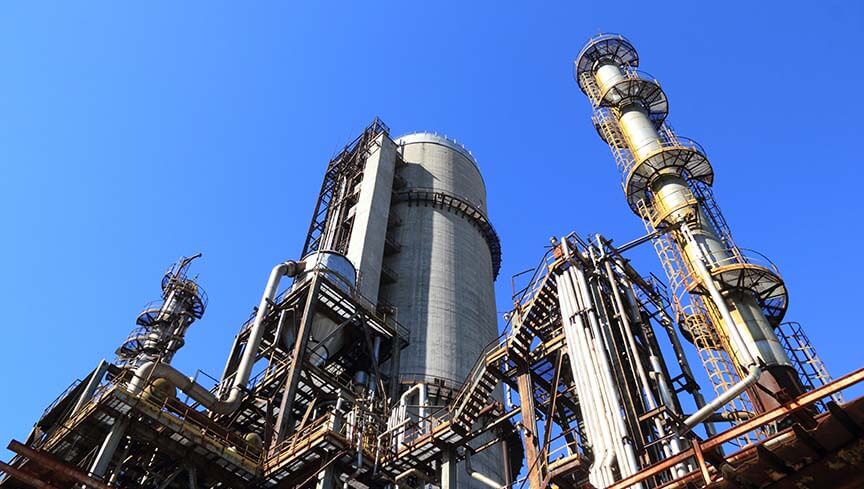PID Temperature Controller with Programmable Input
The BTC-2500 Temperature Thermostat is available with 3 outputs, 2 from the list above as well as an alarm output.
All BrainChild Fuzzy Logic plus PID microprocessor-based thermo controller, incorporate two bright, easy to read 4-digit LED displays, indicating process value and set point value. The Fuzzy Logic technology enables a process to reach a predetermined set point in the shortest time, with the minimum of overshoot during power-up or external load disturbance.
All BTC models have programmable rate of temperature rise and an inbuilt timer that will bring a process up to temperature at a set rate and hold it for a predetermined time before switching off. BrainChild is professional and experienced in the field of high-performance and quality temperature controllers. No matter what kinds of industrial electronic temperature controls you need, we are confident to satisfy your specific requirements.
- Fast input sample rate (5 times / second)
- Basic & full function
- User menu configurable
- Pump control
- Fuzzy+PID microprocessor-based control
- Automatic programming
- Differential control
- Auto-tune function
- Self-tune function
- Sleep mode function
- "Soft-start " ramp and dwell timer
- Programmable inputs (thermocouple,RTD,mA,VDC)
- Analog input for remote set point and CT
- Event input for changing function & set point
- Programmable digital filter
- Hardware lockout + romote lockout protection
- Loop break alarm
- Heater break alarm
- Sensor break alarm+Bumpless transfer
- RS-485,RS-232 communication
- Analong retransmission
- Signal conditioner DC power supply
- A wide variety of output modules available
- Safety UL / CSA / IEC1010-1
- EMC / CE EN 61326
| Power |
|---|
| 90 - 264 VAC, 47 - 63 Hz, 15VA, 15W maximum |
| 11 - 26 VAC / VDC, SELV, Limited Energy, 15VA, 7W maximum |
| Input 1 | Characteristics |
|---|---|
| Resolution | 18 bits |
| Sampling Rate | 5 times / second |
| Maximum Rating | -2 VDC minimum, 12 VDC maximum( 1 minute for mA input ) |
| Temperature Effect | ±1.5 uV/ °C for all inputs except mA input ±3.0 uV/ °C for mA input |
| Sensor Lead Resistance Effect | T/C: 0.2uV/ohm 3-wire RTD: 2.6 °C/ohm of resistance difference of two leads 2-wire RTD: 2.6 °C/ohm of resistance sum of two leads 200nA |
| Common Mode Rejection Ratio ( CMRR ) | 120dB |
| Normal Mode Rejection Ratio ( NMRR ) | 55dB |
| Sensor Break Detection | Sensor open for TC, RTD and mV inputs, below 1 mA for 4-20 mA input, below 0.25V for 1 - 5 V input, unavailable for other inputs. |
| Sensor Break Responding Time | Within 4 seconds for TC, RTD and mV inputs, 0.1 second for 4-20 mA and 1 - 5 V inputs. |
| Input 1 | |||
|---|---|---|---|
| Type | Range | Accuracy@ 25 °C | Input Impedance |
| J | -120 ~ 1000 °C (-184 ~ 1832 °F) | ±2 °C | 2.2MΩ |
| K | -200 ~ 1370 °C (-328 ~ 2498°F) | ±2 °C | 2.2MΩ |
| T | -250 ~ 400°C (-418 ~ 752°F) | ±2 °C | 2.2MΩ |
| E | -100 ~ 900 °C (-148 ~ 1652 °F) | ±2 °C | 2.2MΩ |
| B | 0 ~ 1820 °C (32 ~ 3308 °F) | ±2 °C (200°C - 1820°C) | 2.2MΩ |
| R | 0 ~ 1768 °C (32 ~ 3214 °F) | ±2 °C | 2.2MΩ |
| S | 0 ~ 1768 °C (32 ~ 3214 °F) | ±2 °C | 2.2MΩ |
| N | -250 ~ 1300 °C (-418 ~ 2372 °F) | ±2 °C | 2.2MΩ |
| L | -200 ~ 900 °C (-328 ~ 1652 °F) | ±2 °C | 2.2MΩ |
| PT100 (DIN) | -210 ~ 700 °C (-346 ~ 1292 °F) | ±0.4°C | 1.3KΩ |
| PT100 (JIS) | -200 ~ 600 °C (-328 ~ 1112 °F) | ±0.4°C | 1.3KΩ |
| mV | -8 ~ 70mV | ±0.05% | 2.2MΩ |
| mA | -3 ~ 27mA | ±0.05% | 70.5Ω |
| V | -1.3 ~ 11.5V | ±0.05% | 302KΩ |
| Input 2 | Characteristics |
|---|---|
| Resolution | 18 bits |
| Sampling Rate | 1.66 times / second |
| Maximum Rating | -2 VDC minimum, 12 VDC maximum |
| Emperature Effect | ±1.5uV/ °C for all inputs except mA input ±3.0uV/ °C for mA input |
| Common Mode Rejection Ratio ( CMRR ) | 120dB |
| Normal Mode Rejection Ratio ( NMRR ) | 55dB |
| Sensor Break Detection | Below 1 mA for 4-20 mA input, below 0.25V for 1 - 5V input, unavailable for other inputs. |
| Sensor Break Responding Time | 0.5 second |
| Input 2 | |||
|---|---|---|---|
| Type | Range | Accuracy@ 25 °C | Input Impedance |
| CT94-1 | 0-50.0 A | ±2% of Reading ±0.2A |
302K |
| mA | -3 ~ 27mA | ±0.05% | 70.5 +0.8V / input current |
| V | -1.3 ~ 11.5V | ±0.05% | 302KΩ |
| Input 3 (Event Input) | |
|---|---|
| Logic Low | -10V minimum, 0.8V maximum. |
| Logic High | 2V minimum, 10V maximum |
| External pull-down Resistance | 400 K maximum |
| External pull-up Resistance | 1.5 M minimum |
| Functions | Select second set point and/or PID , reset alarm 1 and/or alarm 2 , disable output 1 and/or output 2 , remote lockout. |
| Output 1 / Output 2 | |
|---|---|
| Relay Rating | 2A/240 VAC, life cycles 200,000 for resistive load |
| Pulsed Voltage | Source Voltage 5V, current limiting resistance 66 . |
| Linear Output Characteristics | |||
|---|---|---|---|
| Type | Zero Tolerance | Span Tolerance | Load Capacity |
| 4-20 mA | 3.6-4 mA | 20-21 mA | 500Ω max. |
| 0-20 mA | 0 mA | 20-21 mA | 500Ω max. |
| 0-5 V | 0 V | 5-5.25 V | 10KΩ min. |
| 1-5 V | 0.9-1 V | 5-5.25 V | 10KΩ min. |
| 0-10 V | 0 V | 10-10.5 V | 10KΩ min. |
| Linear Output | |
|---|---|
| Resolution | 15 bits |
| Output Regulation | 0.01 % for full load change |
| Output Settling Time | 0.1 sec. ( stable to 99.9 % ) |
| Isolation Breakdown Voltage | 1000VAC |
| Temperature Effect | ±0.0025 % of SPAN / °C |
| Triac ( SSR ) Output | |
|---|---|
| Rating | 1A / 240 VAC |
| Inrush Current | 20A for 1 cycle |
| Min. Load Current | 50 mA rms |
| Max. Off-state Leakage | 3 mA rms |
| Max. On-state Voltage | 1.5V rms |
| Insulation Resistance | 1000 Mohms min. at 500 VDC |
| Dielectric Strength | 2500 VAC for 1 minute |
| DC Voltage Supply Characteristics (Installed at Output 2) | |
| Type | Tolerance | Max. Output Current | Ripple Voltage | Isolation Barrier |
| 20V | ±1.0 V | 25mA | 0.2Vp-p | 500VAC |
| 12V | ±0.6V | 40mA | 0.1Vp-p | 500VAC |
| 5V | ±0.25V | 80mA | 0.05Vp-p | 500VAC |
| Alarm 1/ Alarm 2 ( Output 2 ) | |
|---|---|
| Alarm 1 Relay | Form A or Form B for BTC-9300, Form C for BTC4300, BTC-8300, 5V Logic output for BTC-2500 Max. Rating 2A/240VAC, life cycles 200,000 for resistive load. |
| Alarm 2 Relay | Form A,Max. rating 2A/240VAC, life cycles 200,000 for resistive load. |
| Alarm Functions | Dwell timer, Deviation High / Low Alarm, Deviation Band High / Low Alarm, PV1 High / Low Alarm, PV2 High / Low Alarm, PV1 or PV2 High /Low Alarm, PV1-PV2 High /Low Alarm, Loop Break Alarm, Sensor Break Alarm. |
| Alarm Mode | Normal, Latching, Hold, Latching / Hold. |
| Dwell Timer | 0 - 6553.5 minutes |
| Data Communication | |
|---|---|
| Interface | RS-232 ( 1 unit ), RS-485 ( up to 247 units ) |
| Protocol | Modbus Protocol RTU mode |
| Address | 1 - 247 |
| Baud Rate | 0.3 ~ 38.4 Kbits/sec |
| Data Bits | 7 or 8 bits |
| Parity Bit | None, Even or Odd |
| Stop Bit | 1 or 2 bits |
| Communication Buffer | 50 bytes |
| Analog Retransmission | |
|---|---|
| Functions | PV1, PV2, PV1-PV2, PV2-PV1, Set Point, MV1, MV2, PV-SV deviation value |
| Output Signal | 4-20 mA, 0-20 mA, 0-1V, 0-5V, 1-5V, 0-10V |
| Resolution | 15 bits |
| Accuracy | ±0.05 % of span ±0.0025 %/ °C |
| Load Resistance | 0 - 500 ohms ( for current output ),10 K ohm minimum ( for voltage output ) |
| Output Regulation | 0.01 % for full load change |
| Output Settling Time | 0.1 sec. (stable to 99.9 % ) |
| Isolation Breakdown Voltage | 1000 VAC min. |
| Integral Linearity Error | ±0.005 % of span |
| Temperature Effect | ±0.0025 % of span/ °C |
| Saturation Low | 0 mA ( or 0V ) |
| Saturation High | 22.2 mA ( or 5.55V, 11.1V min. ) |
| Linear Output Range | 0 - 22.2mA(0-20mA or 4-20mA), 0 - 5.55V ( 0 - 5V, 1 - 5V ), 0 - 11.1 V ( 0 - 10V ) |
| User Interface | Dual 4-digit LED Displays |
|---|---|
| BTC-4300 | Upper 0.55" ( 14mm ) Lower 0.4" ( 10 mm ) |
| BTC-8300, BTC-9300 | Upper 0.4" ( 10 mm ) Lower 0.31" ( 8 mm ) |
| BTC-2500 | 0.4"(10mm) |
| Keypad | 3 keys |
| Programming Port | For automatic setup, calibration and testing |
| Communication Port | Connection to PC for supervisory control |
| Control Mode | |
|---|---|
| Output 1 | Reverse ( heating ) or direct ( cooling )action |
| Output 2 | PID cooling control, cooling P band 1 ~ 255% of PB |
| ON-OFF | 0.1 - 55.6 ( °C ) hysteresis control ( P band = 0 ) |
| P or PD | 0 - 100.0 % offset adjustment |
| PID | Fuzzy logic modified , Proportional band 0 ~ 500.0 °C , Integral time 0 - 1000 seconds , Derivative time 0 - 360.0 seconds |
| Cycle Time | 0.1 - 100.0 seconds |
| Manual Control | Heat (MV1) and Cool (MV2) |
| Auto-tuning | Cold start and warm start |
| Failure Mode | Auto-transfer to manual mode while sensor break or A-D converter damage |
| Ramping Control | 0 ~ 500.0 °C/minute or 0 ~ 500.0 °C/hour ramp rate |
| Sleep Mode | Enable or Disable |
| Ramping Control | 0 ~ 500.0 °C/minute or 0 ~ 500.0 °C/hour ramp rate |
| Power Limit | 0 - 100 % output 1 and output 2 |
| Pump / Pressure Control | Sophisticated functions provided |
| Remote Set Point | Programmable range for voltage or current input |
| Differential Control | Control PV1 - PV2 at set point |
| Digital Filter | Function : First order Time Constant : 0, 0.2, 0.5, 1, 2, 5, 10, 20, 30, 60 seconds programmable |
| Environmental & Physical | |
|---|---|
| Operating Temperature | -10°C ~ 50°C |
| Storage Temperature | -40°C ~ 60°C |
| Humidity | 0 to 90 % RH ( non-condensing ) |
| Insulation Resistance | 20 Mohms min. ( at 500 VDC ) |
| Dielectric Strength | 2000 VAC, 50/60 Hz for 1 minute |
| Vibration Resistance | 10 - 55 Hz, 10 m/s² for 2 hours |
| Shock Resistance | 200 m/s2( 20 g ) |
| Moldings | Flame retardant polycarbonate |
| Dimensions | BTC-4300 ---96mm(W) X 96mm(H) X 66mm(D), 53 mm depth behind panel BTC-8300 ---48mm(W) X 96mm(H) X 80mm(D), 65 mm depth behind panel BTC-9300 ---50.7mm(W) X 50.7mm(H) X 88.5mm(D), 75mm depth behind panel BTC-2500 ---50mm(W) X 26.5mm(H) X 110.5 mm(D), 98.0 mm depth behind panel |
| Mounting | BTC-4300 ---panel mount, cutout 92 X 92 ( mm ) BTC-8300 ---panel mount, cutout 45 X 92 ( mm ) BTC-9300 ---panel mount, cutout 45 X 45 ( mm ) BTC-2500 ---panel mount, cutout 45 X 22.2 ( mm ) |
| Weight | BTC-4300 --- 255 grams BTC-8300 --- 220 grams BTC-9300 --- 150 gram BTC-2500 --- 120 grams |
| Approval Standards | |
|---|---|
| Safety | UL61010-1,Third Edition |
| Protective Class | BTC-8300, BTC-4300: IP 20 housing and terminals with protective covers. BTC-2500, BTC-9300: NEMA 4X(IP65) front panel , IP 20 housing and terminals |
| EMC | EN61326 |
| Documentation | ||
|---|---|---|
| User Manual- UM25001J | Download | |
| User Manual- UM2500AC Parameter Property Table | Download | |
| Software&Firmware | ||
|---|---|---|
| Software- BC-Set Pro | Download | |
| Software- BC-Set_V2.0 | Download | |
| Software- Data Acquisition Studio (DAQ)_V2.73(2501)※1-hour trial only | Download | |
| Training- Demo Data Acquistion Studio | Download | |
*BC-SET Pro Compatible models:
Plastic/rubber industry
It is installed on the heating material tube of the injection molding machine to control the temperature of the raw material, effectively control the liquid temperature of the plastic and improve the molding quality of the product.
Installed on the hot runner system for temperature control of runners and gates to stabilize the quality of the plastic.
Temperature control on the mold temperature machine, indirectly adjusting the temperature of the mold by adjusting the temperature of the hot fluid, can improve the production efficiency of the product and reduce the generation of defective products.
Electric heating furnace industry
Vacuum furnace equipment / vacuum melting / vacuum heat treatment
A new algorithm for PID adjustment using fuzzy rules is used to adjust the PID algorithm to eliminate the PID saturation integral phenomenon when the error is large. When the error is small, the improved PID algorithm is used for adjustment and can be automatically adjusted. Learn and memorize some of the characteristics of the controlled object to optimize the effect
Semiconductor industry
The temperature control of the electric heating cloth package is often used for the heating of the exhaust pipe valve parts of the semiconductor factory, the panel factory, or the special steel cylinder.
In the semiconductor temperature process control program, the heating system of the chamber, such as the decane process, the dichloromethane process
Ceramic / kiln / glass industry
Ceramic sintering furnace:
The heating process on the sintering furnace controls the heating rate to obtain a finished product with better quality and stability.
Electric kiln:
Temperature adjustment during kiln firing to obtain a finished product with better quality and stability.
Fiber machinery
Dyeing machine:
control the temperature during dyeing to a suitable range, which in turn reduces chromatic aberration and improves the quality of dyed products.
Fiber dryer:
The temperature during drying is controlled within a suitable range to improve the fiber product.
other
Temperature Controller
Constant temperature and humidity machine
Heating/cooling air conditioning
Pool/bathroom temperature control facility
| □ | □ | □ | □ | □ | □ |
| 1 | 2 | 3 | 4 | 5 | 6 |
| 1 Power Input | 4: 90 - 264 VAC, 47-63 HZ 5: 11 - 26 VAC or VDC, SELV, Limited Energy |
| 2 Signal Input | 1: Standard Input Input 1-Universal Input Thermocouple: J, K, T, E, B, R, S, N, L RTD: PT100 DIN, PT100 JIS Current: 4 - 20mA, 0 - 20mA Voltage: 0 - 1V, 0 - 5V, 1 - 5V, 0-10V Input 2-CT: 0 - 50 Amp.AC Current Transformer Analog Input: 0 - 1V, 0 - 5V, 1 - 5V, 0 - 10V Event Input (EI) 9: Special Order |
| 3 Output 1 | 0: None 1: Relay rated 2A / 240VAC 2: Pulsed voltage to drive SSR, 5V / 30mA 3: Isolated 4 - 20mA / 0 - 20mA 4: Isolated 1 - 5V / 0 - 5V 5: Isolated 0 - 10V 6: Triac output 1A / 240VAC,SSR C: Pulsed Voltage to drive SSR, 14V/40mA 9: Special order |
| 4 Output 2 / Alarm 2 | 0: None 1: Form A relay 2A / 240VAC 2: Pulsed voltage to drive SSR, 5V / 30mA 3: Isolated 4 - 20mA / 0 - 20mA 4: Isolated 1 - 5V / 0 - 5V 5: Isolated 0 - 10V 6: Triac output, 1A / 240VAC, SSR 7: Isolated 20V / 25 mA DC Output Power Supply 8: Isolated 12V / 40 mA DC Output Power Supply 9: Isolated 5V / 80 mA DC Output Power Supply C: Pulsed Voltage to drive SSR, 14V/40mA A: Special order |
| 5 Alarm 1 | 1: 5V Logic Output 9: Special order |
| 6 Communications | 0: None 1: RS-485 interface 2: RS-232 interface 3: Retransmit 4 - 20 mA / 0 - 20 mA 4: Retransmit 1 - 5V / 0 - 5V 5: Retransmit 0 - 10V 9: Special order |



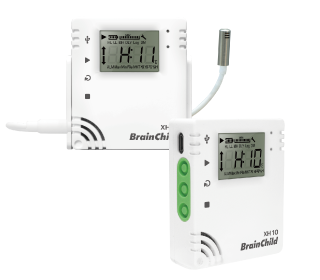
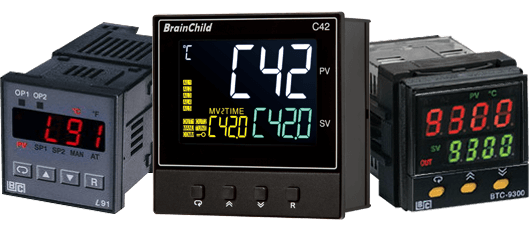

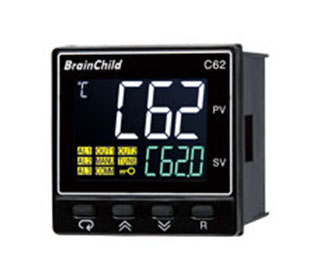
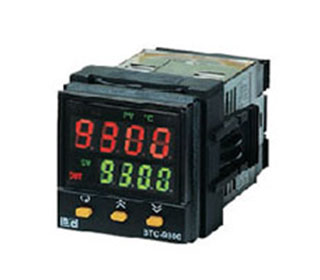
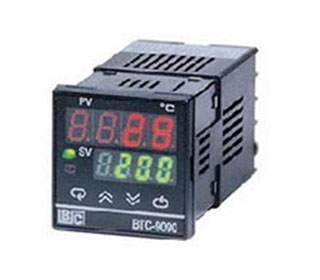
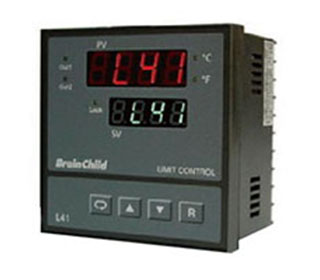
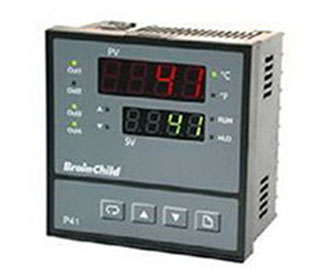
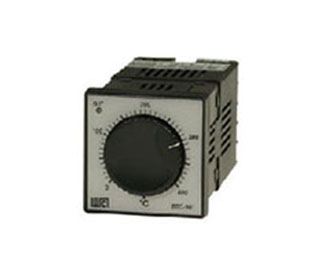

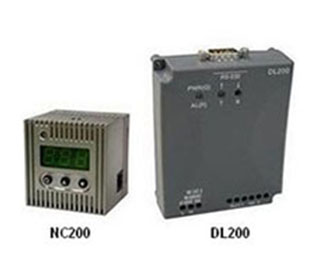
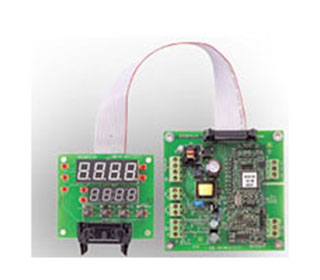
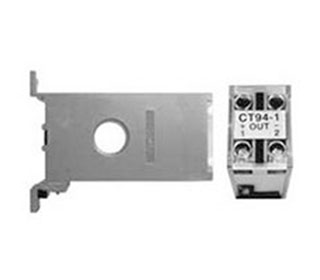
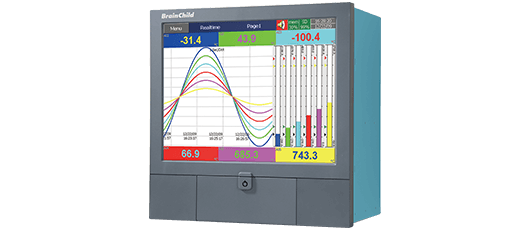
.png)
